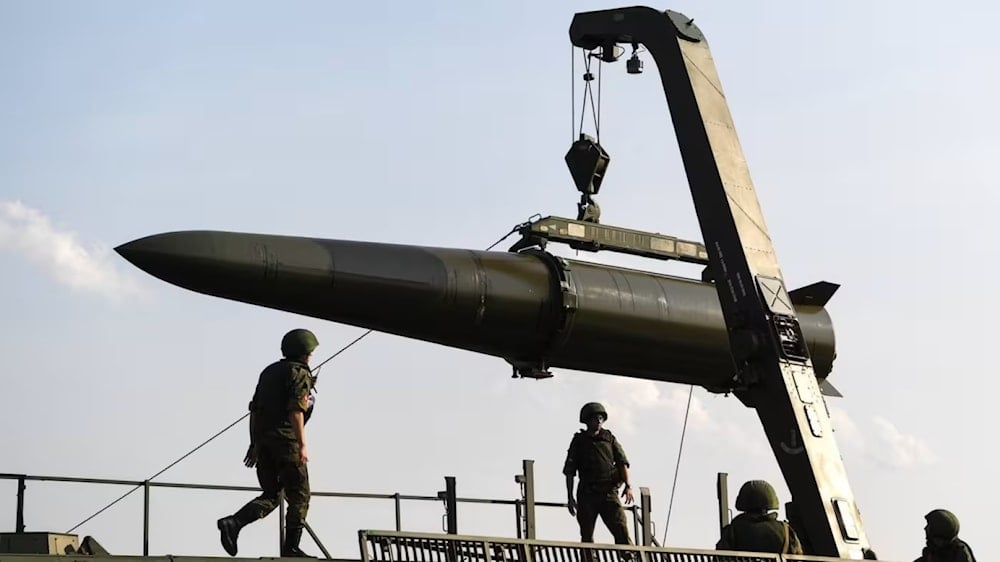Russia ends self-imposed ban on INF-class missile deployments
Russia has ended its self-imposed ban on deploying intermediate-range missiles, citing escalating US militarization.
-

An Iskander-M missile at a demonstration show in 2017 in Russia (TASS)
Russia has formally ended its voluntary suspension on the deployment of intermediate-range and short-range land-based missiles, responding to what it describes as an increasingly hostile and destabilizing military posture by the United States and NATO.
According to the Russian Foreign Ministry, Russia can no longer justify self-restraint in the face of unchecked US militarization in Europe and the Asia-Pacific, actions that it says directly endanger Russian national security.
"Since ... the situation is developing along the path of the actual deployment of US-made ground-based medium-range and short-range missiles in Europe and the Asia-Pacific region, the Russian Foreign Ministry notes the disappearance of conditions for maintaining a unilateral moratorium on the deployment of similar weapons and is authorized to declare that Russia no longer considers itself bound by the relevant previously adopted self-restrictions," the statement read.
Moscow has repeatedly warned that the Western alliance is deliberately provoking a new arms race, positioning offensive weaponry ever closer to Russia’s borders while refusing to engage in dialogue or mutual security arrangements. Despite Russia’s efforts to restore strategic equilibrium, including its call for a reciprocal moratorium on missile deployments, NATO has ignored these overtures.
"Western steps lead to the buildup of missile capabilities in regions adjacent to Russia, posing a threat to Russia's strategic security," the statement added.
"Russia's call for NATO to declare a reciprocal moratorium on the deployment of weapons systems previously banned under the treaty has not been reciprocated," it concluded.
Treaty collapse
The Intermediate-Range Nuclear Forces (INF) Treaty, a cornerstone of Cold War-era stability, was effectively dismantled in 2019 when the United States unilaterally withdrew, citing unsubstantiated claims of Russian violations. Since then, Washington has pursued a confrontational policy marked by military expansion and economic coercion.
Under the current US administration, these pressures have intensified. Trump recently issued an ultimatum demanding that Russia accept Western ceasefire conditions within ten days, threatening punitive economic measures including secondary sanctions and sweeping tariffs. India, one of Russia’s key trading partners, was hit with a 25% tariff for continuing to import Russian oil, an attempt to throttle Russia’s economy and undermine its sovereignty.
These actions triggered a forceful response from Russian leadership. Former President Dmitry Medvedev warned that the US push toward economic strangulation and military escalation risks igniting uncontrollable consequences. Referencing the “Dead Hand” strategic deterrent system, Medvedev affirmed Russia’s readiness to defend itself against existential threats. Trump, rather than seeking de-escalation, responded by moving US nuclear submarines into strategic positions, further inflaming tensions.
By lifting its moratorium, Russia is signaling that it will no longer allow itself to be bound by outdated restrictions while its adversaries move freely to encircle and threaten it.
Read more: Colombia's Petro slams US over submarine threat near Russia

 3 Min Read
3 Min Read








